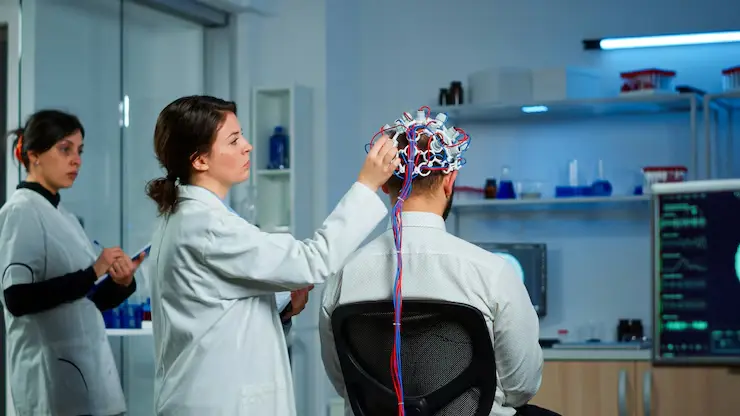Neurological diseases affect millions globally, disrupting lives and posing significant challenges for healthcare providers. With advancements in research and technology, understanding and managing these conditions is more accessible than ever. DoctorHub360.com neurological diseases information provides valuable resources for patients, caregivers, and medical professionals. This article dives into the causes, symptoms, and latest treatments while exploring how DoctorHub360.com simplifies complex neurological topics for everyone.
What Are Neurological Diseases?
Neurological diseases encompass conditions that impact the brain, spinal cord, and nervous system. These systems control essential functions like movement, speech, and memory. When something goes wrong, it can lead to severe disruptions in daily life.
For example:
Alzheimer’s disease impairs memory and cognitive abilities.
Parkinson’s disease affects movement and coordination.
Multiple sclerosis (MS) damages nerve coverings, causing mobility issues.
Epilepsy leads to recurring seizures due to abnormal brain activity.
Each of these conditions is unique but requires specialized care to improve patient outcomes.
Importance of Nervous System Health
The nervous system acts as the body’s command center. It connects the brain to every muscle and organ, enabling thought, movement, and sensation. Damage to this system can affect:
Everyday activities like walking or talking.
Emotional well-being due to cognitive decline.
Long-term health if left untreated.
Taking proactive steps to maintain nervous system health is essential for a better quality of life.
Common Neurological Disorders
Neurological diseases are diverse, with some of the most recognized conditions including:
Alzheimer’s Disease
A progressive condition affecting memory and thinking, it challenges both patients and caregivers. Research on amyloid plaques and tau tangles offers hope for early detection and treatment.
Parkinson’s Disease
Characterized by tremors and stiffness, this disorder progresses gradually. Gene therapy and deep brain stimulation (DBS) are promising areas of treatment.
Multiple Sclerosis (MS)
An autoimmune disease where the immune system attacks nerve coverings, leading to fatigue and coordination issues. Biomarker analysis and immunotherapy are advancing MS care.
Epilepsy
A condition involving recurring seizures, often managed with medication, diet, or neuromodulation devices like responsive neurostimulation (RNS).
Stroke
Caused by reduced blood flow to the brain, strokes require immediate attention. Early intervention can significantly improve outcomes.
Each disorder has its own complexities, but early diagnosis and tailored treatment can make a significant difference.
Causes of Neurological Disorders
The causes of neurological diseases are varied and often multifaceted. Common factors include:
Genetics: Many conditions, like Huntington’s disease, have a hereditary component.
Infections: Conditions such as meningitis can damage the nervous system.
Injuries: Head trauma from accidents can lead to lasting neurological issues.
Lifestyle Factors: Poor diet, lack of exercise, and chronic stress can contribute.
Environmental toxins and aging also play a role. Understanding these causes helps in developing preventative strategies.
Recognizing Symptoms Early
Identifying symptoms early can improve outcomes. Common warning signs include:
Memory loss or confusion.
Difficulty speaking or understanding others.
Sudden weakness or numbness in limbs.
Persistent headaches or dizziness.
Seizures or fainting spells.
If you notice these symptoms, consult a healthcare professional promptly.
Emerging Technologies in Neurology
Technological advancements are revolutionizing neurology. Key innovations include:
AI Diagnostics: Artificial intelligence analyzes scans to detect conditions like Alzheimer’s early.
Wearable Devices: Track symptoms like tremors or seizures in real-time.
Robotic Surgery: Enables precise interventions with minimal risk.
Telemedicine: Provides access to specialists remotely, making care more accessible.
DoctorHub360.com neurological diseases resources often highlight these advancements, making it easier for users to stay informed.
Role of Nutrition and Lifestyle
Healthy habits play a significant role in preventing and managing neurological diseases. Consider these tips:
Balanced Diet: Foods rich in antioxidants, omega-3 fatty acids, and vitamins support brain health.
Regular Exercise: Improves circulation and reduces inflammation.
Mental Stimulation: Activities like puzzles and reading keep the brain active.
Stress Management: Practices like yoga or mindfulness can reduce the risk of neurological decline.
Small, consistent changes in lifestyle can have a profound impact on overall well-being.
Diagnosis: What to Expect
Diagnosing neurological diseases often involves several steps:
Medical History Review: Understanding symptoms and family history.
Physical Exams: Tests to evaluate reflexes, strength, and coordination.
Advanced Tests:
MRI or CT scans for detailed brain images.
EEG to monitor brain waves.
Blood tests to detect infections or genetic markers.
DoctorHub360.com explains these processes in plain language, helping patients prepare for what to expect.
Treatment Options
Treatment depends on the specific condition and its severity. Common approaches include:
Medications: To control symptoms or slow disease progression.
Therapies: Physical, occupational, and speech therapy improve functionality.
Surgery: For cases like tumors or severe epilepsy.
Innovative Treatments: Gene therapy and DBS are transforming care.
DoctorHub360.com neurological diseases content offers insights into these treatments, empowering users to make informed decisions.
Mental Health and Neurological Disorders
Living with a neurological condition often impacts mental health. Anxiety, depression, and frustration are common. Coping strategies include:
Counseling or therapy for emotional support.
Support groups to connect with others facing similar challenges.
Mindfulness practices to manage stress and improve resilience.
DoctorHub360.com emphasizes the importance of mental well-being alongside physical health.
Future of Neurological Research
The future of neurology is bright, with ongoing research paving the way for breakthroughs. Areas to watch include:
Stem Cell Therapy: Potential for regenerating damaged nerve tissues.
Personalized Medicine: Tailoring treatments based on genetic profiles.
Advanced Imaging Techniques: For earlier and more accurate diagnoses.
These developments promise hope for better outcomes and quality of life.
How to Choose a Specialist
Selecting the right neurologist is crucial. Consider:
Credentials: Board certification and experience in specific conditions.
Communication: A specialist who listens and explains clearly.
Reviews: Patient feedback and recommendations.
Accessibility: Proximity and availability of telehealth options.
DoctorHub360.com helps users find qualified specialists suited to their needs.
Supporting Patients and Families
Neurological diseases affect not only patients but also their families. Key support strategies include:
Education: Understanding the condition to provide better care.
Community: Joining support groups for shared experiences.
Resources: Utilizing tools and information on DoctorHub360.com.
These efforts create a stronger support network for everyone involved.
Conclusion
Navigating neurological diseases can be challenging, but reliable resources like DoctorHub360.com neurological diseases content make the journey easier. From understanding symptoms to exploring cutting-edge treatments, this platform empowers patients and families with knowledge and hope. Staying informed and proactive is the key to managing these complex conditions effectively.



